Speakers and Panellists

Dr Jennifer Leigh - University of Kent
Title: Ableism in Academia
Abstract
It is well recognised that there are inequalities, systemic, and structural barriers for those who are marginalised, and that these barriers are intersectional and compound.Certain bodies are deemed out of place, and this is particularly so in academia and science. Diversity is seen as something to be celebrated rather than expected. Neither academia nor science are diverse or representative of the wider community. Disabled academics are underrepresented in the work force yet we live in a world where disability is used as ‘inspiration porn’ (a term coined in 2014 by the late comedian and journalist Stella Young). Just like those marginalised because of their race, ethnicity, religion, gender, or any one or more protected characteristic; disabled people face discrimination, barriers, and microaggressions. Ableism comes from external funding bodies, our own institutions, and internally from within ourselves. So, how can we create change and bring about an equitable research culture?
Bio
Dr Jennifer Leigh is a Reader in Creative Practices for Social Justice in the School of Sociology, Social Policy, and Social Research at the University of Kent. She is a chemist turned sociologist, with a particular interest in using embodied, reflective, and creative practices for social justice. Her current work includes addressing and highlighting experiences of marginalisation in science due to intersectional factors including disability, gender, race, and caring responsibilities. She is a Co-Lead of NADSN’s STEMM Action Group, Vice Chair (Research) of the International WISC (Women in Supramolecular Chemistry) Network, and the Athena Forum Disability Champion.
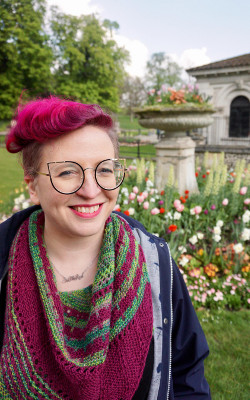
Dr Emma Sheppard - University of Coventry
Title: Access as Care
Abstract
Within spaces of research, access tends to follow from declaration and disclosure; managing access for researchers is positioned as the responsibility of the disabled researcher themselves. Instead, I want to explore the ways in which ideas from universal design for education can sit alongside the idea of "access intimacy" (Mingus 2010, Piepzna-Samarasinha 2018) to develop access as an act of care, building inclusive spaces which reduce the burdens of declaration and access management - making spaces where disabled researchers are included from the outset.
Bio
Emma Sheppard is a critical disability studies researcher, whose interests include chronic illness, fatigue, and crip/queer time - as well as accessible research and teaching. She is a lecturer in Sociology at Aberystwyth University.
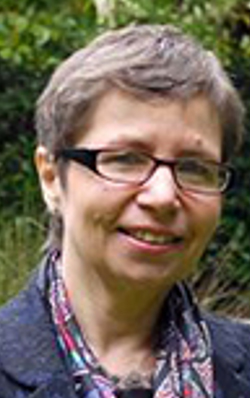
Professor Nicola Martin, Professor of Social Justice and Inclusive Education, London South Bank Universty (LSBU)
Title: Fair Employment of Autistic Researchers: Identifying and Addressing Barriers
Abstract:
The Critical Autism and Disability Studies (CADS) research group at LSBU (amongst other things) seeks to understand and address barriers faced by autistic people in relation to gaining, keeping and progressing in employment in academic roles in our universities.
Unemployment and under employment of autistic people generally is well documented and this represents a huge and unnecessary waste of talent which frustrates me massively.
Employment is a broad church and autism is a broad spectrum and there are so many roles in which autistic people could excel given the opportunity. I am focussing here on the employment of autistic academics in research positions in UK universities.
Bio:
Nicola has held various academic and leadership roles in the sector, including leading professional services functions. Currently she leads the EdD; Social Justice and Inclusive Education, and the Critical Autism and Disability Studies (CADS) Research Group at LSBU. CADS participatory, interdisciplinary research focusses on inclusive education across the age range, through Universal Design for Learning; equity in employment; mentoring; wellbeing and fulfilment.
Fair employment of autistic and disabled researchers is a key principle of CADS engagement with funded research. The Participatory Autism Research Collective (PARC) originated within CADS and (although unfunded) provides networking and peer support opportunities for autistic scholars.
Nicola is a National Teaching Fellow, RSA Fellow, Senior Fellow of the HEA and an Accredited Speaker for the CPD Standards Office, and hold, various visiting professorships and fellowships and external examiner posts.
During 2023-2024, she is co-editing three books, two focussing on aspects of Universal Design for Learning and the third on Autism Wellbeing and Fulfilment across the life course.
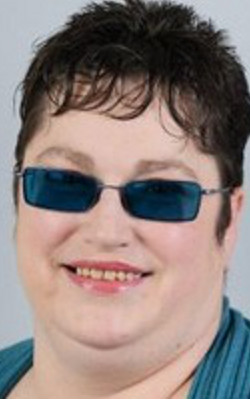
Dr Katherine Deane - University of East Anglia
Title: Lab Access
Abstract:
My team conducted a survey of 152 people (disabled scientists and people with an interest in disability access) - to determine barriers and possible solutions to wider lab access. The results show that not only do many people find labs to be frequently inaccessible, but also unsafe, with commonly-occurring discriminatory practices. However, solutions were suggested, and in combination with guidelines already in the public domain, the team created a suite of guidelines for the whole laboratory ecosystem. These guidelines advise on access for structures, equipment, protocols, dissemination (including webpages and conferences), and general working practices.
Many of the recommendations are low cost or free, and would dramatically improve the humaneness of the work environment for all employees. The guidelines will ensure laboratories are set up so that everyone can equally benefit from the diversity and expertise of disabled scientists, who are currently rarely recruited nor retained well.
Bio:
Dr Katherine Deane is a wheelchair user with a variety of long term conditions. She is also a Associate Professor in the School of Health Sciences at the University of East Anglia (UEA) in Norwich. She conducts research on the co-created management of long term conditions and disabilities. She is also the University’s Access Ambassador and has improved the accessibility of their campus substantially in the last six years. She has provided access advice to the Houses of Parliament, UKRI, theatres, museums, science centres, train companies, television companies, water and power companies, and roadworks equipment manufacturers.
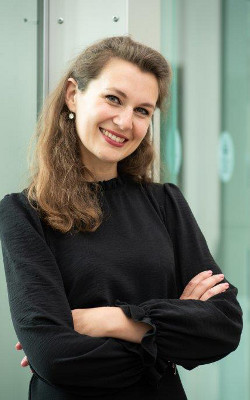
Solène Anglaret
Title: Adjustments - The Why, the What and the How
Abstract
During this interactive session, we will talk about what reasonable adjustments are. We will explore their importance and benefits as well as discuss some of the challenges faced when requesting accommodations, particularly in the workplace and in research. Conversations with managers or supervisors about adjustments can be daunting, so we'll discuss ways these can be approached to reach a positive outcome. The session will be a combination of sharing my own lived experience, as a neurodiverse individual, employee, and manager, hearing from others in the virtual room, as well as providing practical tools and resources. Looking forward to seeing everyone there!
Bio
Solène Anglaret is a speaker, writer, and facilitator who specialises in neurodiversity and neuroinclusion meets innovation, leadership, and culture. Over the past 12 years, she has worked across six (soon seven!) different countries and for a wide range of businesses and industries – from Veolia, to Thomas Cook, Expedia Group, Harri, and Innovate UK. In 2018, she started her own venture: Be Beyond Borders. She published four books and now hosts the talkshow 'The Inclusion Conversation’. In 2023, she was named as one of the Top 50 most influential neurodivergent women in the UK.
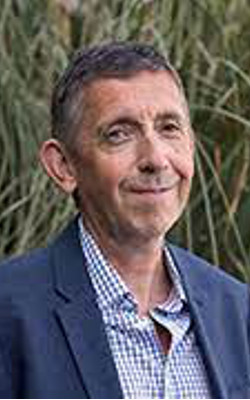
Dr Robin Mellors-Bourne - CRAC Vitae (Panellist)
Bio
CRAC (The Careers Research and Advisory Centre) is a UK non-profit organisation, founded in 1964, that provides research, expertise and innovation services to educational and other organisations that support career development. It also owns Vitae, a programme focused on development of researchers. Robin founded CRAC’s research and evaluation work and has led it for over 10 years. His research interests include: career decision-making; transitions into/through/from higher education; STEM and research careers; graduate and researcher career destinations and tracking; diversity and inclusion; and impact studies. He has created and implemented over 50 career research or evaluation studies to date, many relating to higher education and/or research. He is a Fellow of the National Institute for Careers Education and Counselling (NICEC). Amongst recent work have been evaluations of numerous early-career fellowships and other programmes as well as thematic studies on a range of diversity-focused topics, including inclusive selection, disability amongst research scientists and intergenerational fairness.
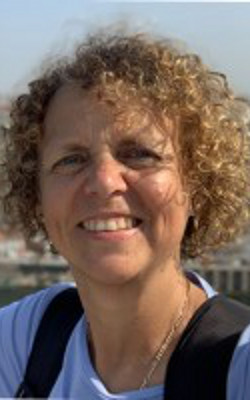
Dr Nicole Brown - University College London
Title: Bodies and Buildings - the lived experience of disability, chronic ilness and/or neurodiverence in academia
Abstract
This presentation reports on a research aiming to uncover how disabled, chronically ill and/or neurodivergent academics experience buildings in higher education and what impact the physical environment may have on their everyday experience. The overarching research question was: How do disabled, chronically ill and/or neurodivergent members of staff experience academic buildings? Data was collected via interviews with 11 participants, of whom five participants were long-established members of academia, whereas the other six participants were doctoral students or early careers researchers. Findings show that despite many improvements and developments over decades, academic buildings still are widely inaccessible, but that inaccessibility is fluid depending on how busy the building is. Ultimately, disabled, chronically ill and/or neurodivergent people are socially and emotionally lonely amongst the masses.
Bio
Nicole Brown is Head of Research Ethics and Integrity at IOE, Associate Professor at UCL and Director of Social Research & Practice and Education Ltd. She has published the books Making the Most of Your Research Journal (Policy Press), Embodied Inquiry: Research Methods (Bloomsbury), Lived Experiences of Ableism in Academia: Strategies for Inclusion in Higher Education (Policy Press), and Ableism in Academia: Theorising Experiences of Disabilities and Chronic Illnesses in Higher Education (UCL Press). Her next books will be Creativity in Education: International Perspectives (UCL
Press) and Photovoice Reimagined (Policy Press).
Nicole's research interests relate to social research practices, in particular physical and material representations of experiences, the use of metaphors in research and the generation of knowledge.

Dr Petra Boynton - Independent Consultant
Title: Wellbeing, safety and access from a critical perspective
Abstract
'Academic mental health' was a long-neglected topic, that has recently gained attention, frequently at the expensive of minoritised scholars who've been researching and campaigning on this issue in the past. In this talk I will focus on some of the issues impacting on academia currently, how these affect our wellbeing, and consider some ways we can care for ourselves, before reflecting briefly on how disabilities and chronic illnesses may make navigating academic spaces more challenging. Particularly if you intend to challenge academic spaces.
Bio
Petra Boynton is a Social Psychologist who supports universities, charities, research organisations and government departments to undertake and use research in inclusive, accessible, ethical and safe ways. With a key focus on mental health and wellbeing.
Petra’s self-help books for scholars include The Research Companion: a practical guide for the social sciences, health and development (2nd Ed, 2016) and Being Well In Academia: ways to feel stronger, safer and more connected (2020) – a practical and supportive mental health guide for students and staff; both Routlege.
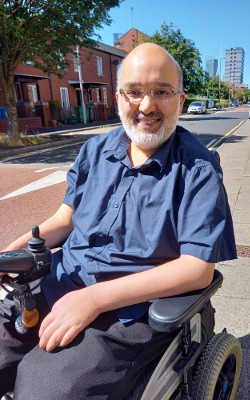
Dr Hamied Haroon
Title: Disabled lives do matter
Abstract
In this presentation, Hamied will begin by talking about his own journey through education, having to change his career aspirations due to disablist assumptions being made about him, and starting his own brand of disability activism. Hamied will express how he feels about working as a Disabled research scientist. He will then introduce the National Association of Disabled Staff Networks (NADSN), which he chairs, reiterating the Social Model of Disability, and the ableist barriers they are identifying and working to address in academia and STEMM. As a life-long Disabled person, Hamied wants to emphasise that Disabled lives really do matter in every way.
Bio
Dr Hamied Haroon works as a Research Scientist in quantitative biomedical magnetic resonance imaging (MRI) at The University of Manchester, where he gained his PhD in 2005.
When Hamied became a member of staff he was shocked to suddenly lose all the support he had as a disabled student! He helped to establish the University’s Disabled Staff Network in 2007 and became its first Chair. The Network’s first proud success was to achieve a dedicated University support service for disabled staff!
In 2013, Hamied became Co-Chair of the Network with Melanie Sharpe, and together they organised the “What Are We Hiding?” national conference for disabled staff on 6th June 2014 focussing on hidden disabilities and the hidden contribution of disabled people to the economy. Based on the success of this conference, they won the University’s inaugural “Making A Difference Award for Equality & Diversity” in May 2015. At this conference, Hamied launched the National Association of Disabled Staff Networks (NADSN), a super-network that connects and represents disabled staff networks in universities and colleges, NHS trusts and other sectors, which he currently chairs.
Hamied won the University’s Staff Volunteer of the Year Award 2019 for being a “tireless campaigner”.
The Royal Society highlighted the profiles of a selection of past and present disabled scientists to celebrate the International Day of Disabled People in 2019, which included Hamied. As 2021 began, Hamied was co-opted onto The Royal Society’s Diversity Committee, and featured in a new children’s book called “Superhero Scientists”!
He delivered the Annual Disability Lecture at the University of Cambridge in 2018 and the University of Oxford in 2021.
Hamied was named as the Physics & Astronomy Section President for the British Science Festival 2023, and he will be speaking at the EDIS Symposium 2023 on a panel about “inclusive leadership”.